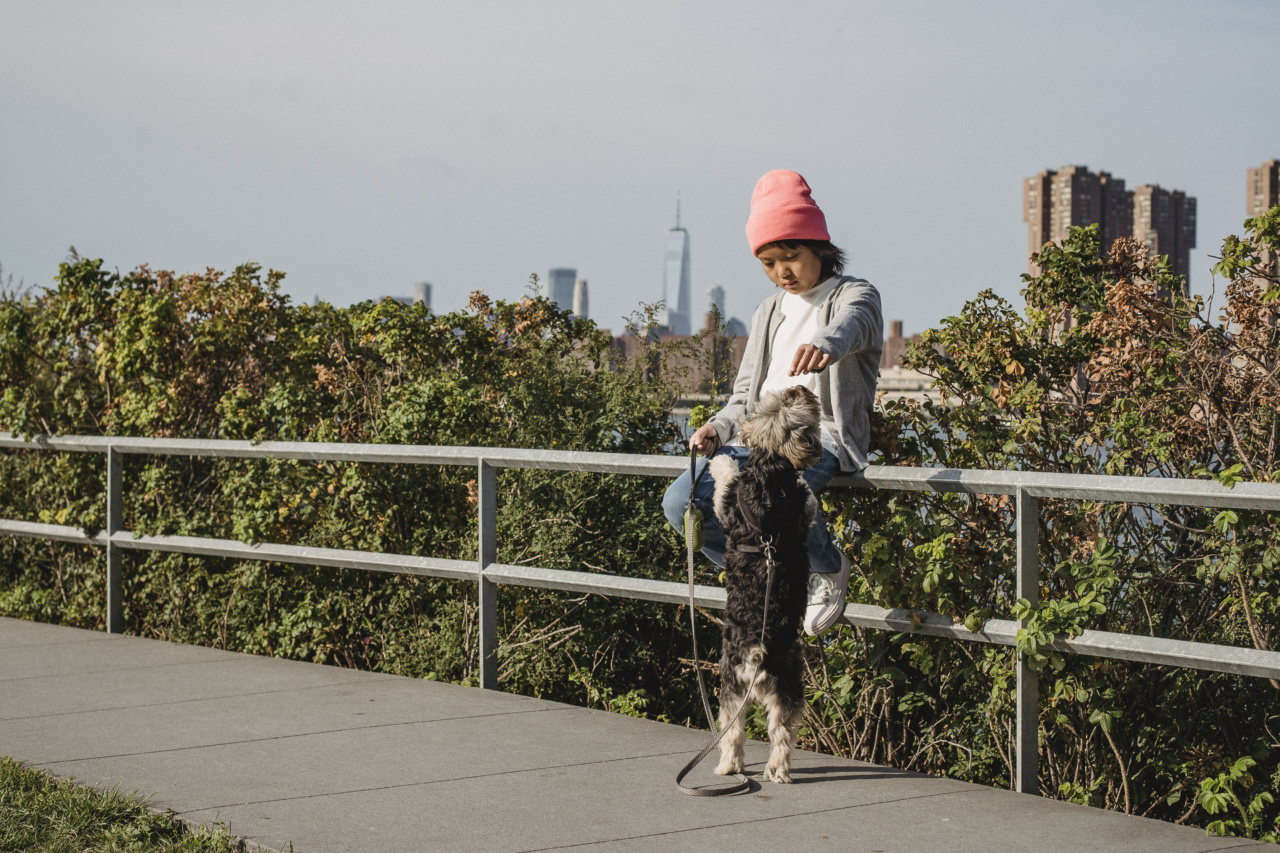Dogs have long been recognized as man’s best friend, but their role goes beyond just being faithful companions for adults. Dogs can also serve as an exceptional source of friendship and mentorship for children.
The unique bond between dogs and kids is truly something remarkable, and the benefits it brings to a child’s life are immeasurable.
The Importance of Companionship
One of the primary reasons why dogs are fantastic for children is the companionship they provide. Having a dog as a best friend creates a special connection that can be truly transformative.
Dogs are always there to listen, to love unconditionally, and to offer comfort during challenging times. For many children, having a loyal and understanding companion like a dog can help them navigate the ups and downs of childhood more easily.
Teaching Responsibility
Another crucial aspect of the dog-child relationship is the responsibility it instills in kids.
When a child is entrusted with the care of a dog, they learn about the importance of meeting their pet’s basic needs, such as feeding, grooming, and exercise. This responsibility teaches children valuable life skills like commitment, empathy, and dependability.
The sense of accomplishment and pride that comes from taking care of another living being can greatly enhance a child’s self-esteem and development.
Developing Empathy and Social Skills
Dogs have a unique ability to teach children empathy and enhance their social skills. Being attuned to a dog’s emotions and needs helps children develop a sense of empathy and compassion.
As they learn to interpret a dog’s body language and respond accordingly, they become more attuned to the emotions and needs of humans as well. Furthermore, dogs provide an opportunity for children to practice their social skills.
Interacting with a dog in a positive and respectful manner helps kids understand the importance of clear communication, respect for personal boundaries, and non-verbal cues.
Promoting Emotional Development
Children often experience a wide range of emotions during their formative years, and having a dog as a confidant can greatly support their emotional development.
Dogs are non-judgmental and provide a safe space for children to express their feelings openly. Whether a child is happy, sad, angry, or scared, a dog will always lend a supportive ear and a comforting presence. Dogs have been shown to reduce stress, anxiety, and loneliness in children, while promoting a sense of security and unconditional love.
Improving Physical Health
Besides the emotional benefits, dogs also contribute to a child’s physical well-being. Dogs require regular exercise, and this encourages kids to be more active as well.
Whether it’s taking the dog for walks, playing fetch in the backyard, or running around together, these activities provide valuable opportunities for children to engage in physical exercise and improve their overall fitness. Additionally, studies have shown that children who grow up with dogs are less likely to develop allergies and asthma, as exposure to dogs at an early age strengthens their immune system.
Playtime and Bonding
Playtime is a vital component of a child’s development, and dogs are fantastic playmates. Dogs have an innate ability to make even the simplest activities fun and exciting.
Whether it’s playing tug-of-war, chasing a ball, or engaging in a game of hide-and-seek, these playful interactions provide children with endless joy and laughter. The shared moments of playtime promote bonding between a child and their canine friend, fostering a connection built on trust, mutual understanding, and shared experiences.
A Lifelong Friendship
The bond formed between a child and their dog is often one that lasts a lifetime. Growing up with a dog creates memories that can be cherished for years to come.
Dogs witness a child’s growth, comfort them during trying times, and share countless moments of joy and happiness. As a child grows into adulthood, they carry the lessons learned from their canine companion, such as loyalty, unconditional love, and resilience.
Effective Communication
Dogs and children communicate in their unique ways, and this interaction enhances a child’s communication skills. Dogs rely heavily on non-verbal cues, teaching children the importance of observation and understanding subtle signals.
By learning to recognize a dog’s body language, children become better communicators, both with animals and with their peers. The ability to effectively communicate and interpret non-verbal cues is a valuable skill that children can carry into various aspects of their lives.
Building Confidence
Having a dog as a best friend can significantly boost a child’s confidence. Dogs provide a sense of security and support that allows children to step out of their comfort zones.
Whether it’s reading aloud to their pup, performing tricks together, or simply knowing they have a loyal friend who believes in them, dogs motivate children to take risks and overcome challenges. The unwavering love and encouragement received from a dog can empower a child and foster their personal growth.
Encouraging Responsibility Towards Nature
Through their connection with dogs, children develop a sense of responsibility not only towards their pets but also towards nature and other animals. Dogs teach children about the importance of love and care for all living beings.
This understanding can extend beyond the household pet and encourage kids to become compassionate stewards of the environment. Caring for a dog often sparks an interest in animal welfare and the desire to make a positive impact on the world around them.
The Unbreakable Bond
The bond between a child and their dog is truly unbreakable. Dogs offer unwavering loyalty, unconditional love, and a deep understanding that few other relationships can match.
As a child’s best friend and mentor, a dog has the power to shape a child’s character, instill important values, and provide unwavering companionship throughout their formative years. In return, children offer companionship, playfulness, and endless doses of love and laughter to their furry friends.































